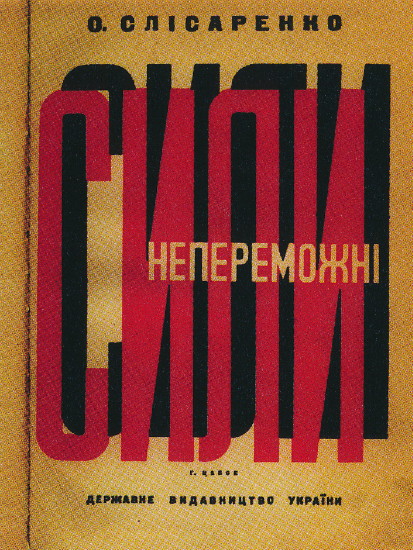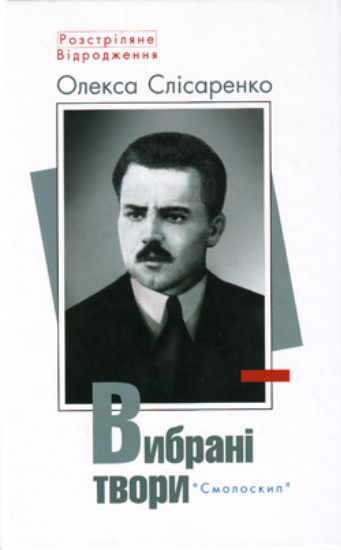Slisarenko, Oleksa
Slisarenko, Oleksa (Слісаренко, Олекса; pseud of Oleksa Snisar), b 28 March 1891 in Konivtsov khutir (now Shyputove), Vovchansk county, Kharkiv gubernia, d 3 November 1937 in Sandarmokh, Karelia region, RSFSR. Poet and prose writer. In the 1920s he moved to Kharkiv, where he became editor at the Knyhospilka publishing house. He was also coeditor of Universal’nyi zhurnal (1928–9). His first published poems appeared in 1910–11, in the student journal Do pratsi and in Rillia. In Kyiv he joined the Bila Studiia group of Ukrainian symbolists and met with members of the Muzahet group. His first anthology of symbolist poetry, Na berezi Kastal’s’komu (On the Kastal Coast, 1919), was marked by the influence of Pavlo Tychyna, Oleksander Oles, and Konstantin Balmont and other Russian symbolists. It also evinced some elements of expressionism. He subsequently joined the Panfuturist organizations Association of Panfuturists and Komunkult and published the collections of futurist poems Poemy (Poems, 1923) and Baida (1928). His attention to form and to poetic expression is evident.
Slisarenko began writing prose in 1924 and published over 20 collections of English- and American-style crime-adventure stories, including Bunt (The Revolt, 1928), Zlamanyi gvynt (The Broken Bolt, 1929), Chornyi Anhel (Black Angel, 1929), Khlibna rika (The River of Bread, 1932), and Straik (Strike, 1932). His prose deals mainly with the period immediately preceding and during the Revolution of 1917, and his protagonists are antiheroes, people who are thrust into collisions with the revolution. Slisarenko also wrote poetry for children. In 1931 he published a collection of stories under the pseudonym Omelko Buts, Posmertna zbirka tvoriv (Posthumous Collection of Works). A selection of his works appeared in 1930, and a complete six-volume edition was published in 1931–3.
Slisarenko was repressed during the Stalinist terror because of his ties to the symbolists and Panfuturists, his membership in Hart and Vaplite, and, particularly, his sharp rebuke of Maxim Gorky in 1927, after Gorky refused to permit the publication of a translation of Mat’ (Mother) into Ukrainian. He was arrested in 1934 and sent to the Solovets Islands, where he was shot. In the late 1950s he was ‘rehabilitated,’ and his novels Bunt and Chornyi Anhel were republished in 1965 and 1990. A more extensive edition of his selected prose and poetry, compiled by Vira Aheieva, was published by the Smoloskyp Publishers in Kyiv in 2011.
Bohdan Kravtsiv
[This article was updated in 2011.]
.jpg)


